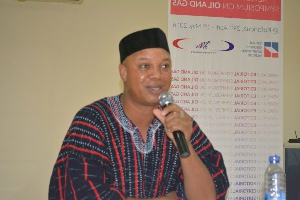‘Make Labour Law beneficial to workers in informal sector’

Speakers at a workshop organised to sensitive workers of the informal sector to the Labour Law, have emphasized the need to make the law beneficial to workers in that sector.
According to them, many people, especially, women in the informal sector, worked under very abusive and unfair conditions and were also ignorant of their rights.
The speakers were the Minister of Gender, Children and Social Protection (MOGCSP), Mrs Cynthia Morrison, a Labour Consultant, Mr Seth Abloso and the Programme Officer at the Gender Centre for Empowering Development (GenCED), Ms Elorm Atakil.
The workshop, organised by GenCED, in collaboration with the MOGCSP, formed part of the celebration of this year’s International Women’s Day, which is marked on March 8, every year.
The workshop was held to educate workers in the informal sector such as hairdressers, beauticians, seamstresses and artisans on the Labour Law and to help deepen their knowledge and understanding of the Labour Act 2003, as well as women’s rights at the workplace.
What the law says
Mr Abloso said the informal sector covered more than 80 per cent of the workforce, yet the labour laws were silent on them.
Nonetheless, he indicated that the labour laws made provisions for the rights of workers which included those in the informal sector, which was the main employer in Ghana, providing income for many people.
Therefore, he said the workforce in the sector needed to be educated on their rights to enable them access them through the operations of associations and organisations.
Mr Abloso stated that, the lack of regulation for the informal sector, had led to the violation of rights, including overtime duties which were not paid by employers.
Educating the participants on some of the provisions of the Labour Law, Mr Abloso said, workers of the informal sector were to work for eight hours, like those in the formal sector, were entitled to a minimum annual leave of two weeks, and social security.
In the case of pregnant women in the informal sector, he said, workers and apprentices had the right to work till their time was due for maternity leave, and were not to be transferred if the pregnancy was four months old.
In addition, Mr Abloso said these provisions applied to domestic workers, and urged them to demand for their rights.
He further explained that since the market place served as workplace for people, mostly women, they had the right to a safe and healthy environment at the market.
For instance, he said, there should be space and access for ambulance and fire tenders to move in and out of the market.
Treat workers right
Mrs Morrison urged the owners of small and medium scale businesses including hairdressers, seamstress and artisans, to treat their workers and apprentices well and follow the labour laws in that respect.
She expressed concern about how some owners of these small and medium scale businesses abused their workers by making them work for longer hours, saying “you have to treat your apprentices and workers right so that they can be good to you”.
She said similar training would be held across the country to educate workers, business owners and apprentices on their labour rights.
The purpose
For her part, Ms Atakil said education and sensitization to the labour law, was very low and a number of people were not aware of the existence of the National Labour Commission created by the Labour Act to address violations at the workplace, both in the formal and in the informal sector.
Due to the fact that the informal sector was largely not supervised and sometimes untaxed, she said they were often not included or regarded “in the labour conversation”, saying, it was for this reason that the GenCED was collaborating with the MOGCSP to embark on sensitization and education on the Labour Law for some workers in the informal sector.
Source: Graphic.com.gh





